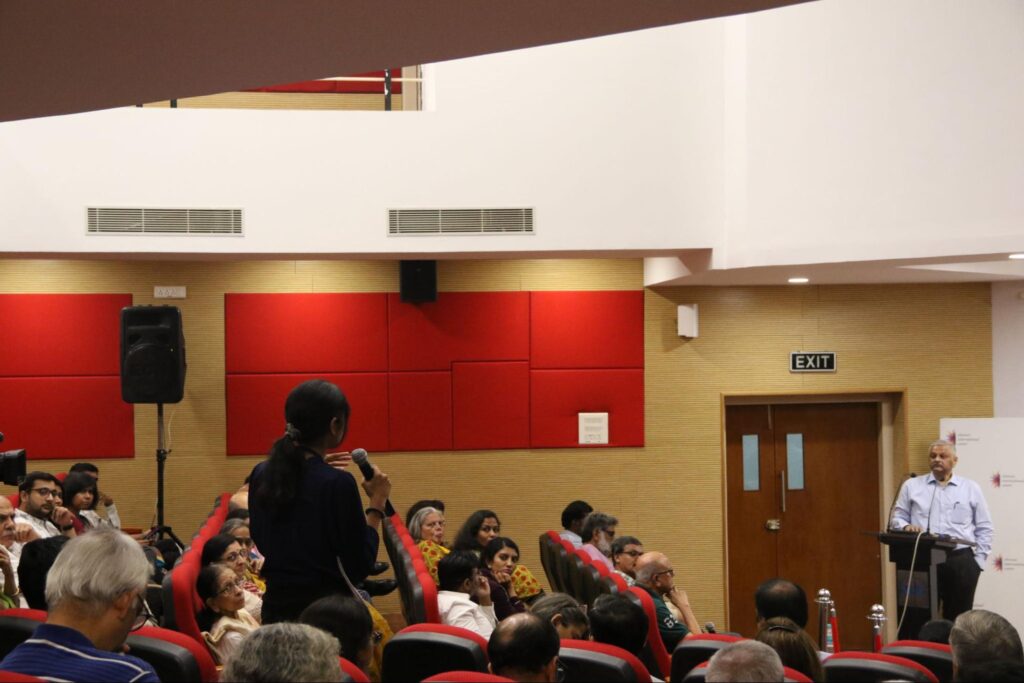The Annual Madras Day festivities have begun with a collection of heritage walks, heritage talks, contests, and various other community-organised events in the city.
While the entire month of August is usually set aside to organise events to commemorate the historical founding of the city on August 22, 1639, most of the events occur over the actual week in the run-up to Madras Day.
Started by a group of community journalists and historians in 2004 – notable among them Vincent D’Souza, Sashi Nair and S. Muthiah – the celebration of Madras Day aims to bring people and communities together to celebrate the city.
When the idea of celebrating Madras Day was first mooted, many people were hesitant to celebrate a date that marks colonisation by the English, but after almost 20 years in the making, there has been more backing and enthusiasm. The events are now widely viewed as a celebration of the city.
“The Department of Tourism now even helps to celebrate it by organising heritage walks,” says Sriram Venkatakrishnan, columnist, music historian and heritage activist. “From the time when the administration dismissed the idea of Madras Day as elitist and colonial, we have come a long way,” he adds, “The government has become a great proponent of heritage today.”
Thought behind the celebrating Madras Day
Vincent and Sriram both emphasise that the Madras Day initiative was less about celebrating the founding of the city, and more about creating a community space to celebrate and talk about the city of Chennai, through various different channels.
‘We just needed a date to celebrate the city, there is no harm in celebrating a city, it has to be celebrated because it provides a livelihood for millions, education for millions, healthcare for millions, that itself is a great initiative,” says Sriram. “In the south Indian psyche, we tend to not celebrate anything, so even the concept of celebration of itself is something we have brought into this city.”
“There is already a strong culture of music and dance in the city, but in the intellectual space, a gap was felt. A platform where people can come together and talk about intellectual ideas is the felt need of Chennai. CIC is an attempt to fulfil this need,” says Dr C Chandramouli, managing director of the Chennai International Centre (CIC), which partners with Madras Day in organising various events.
The CIC has in fact organised hundreds of community events since its inception in 2016, focussing on various issues related to the city.
Read more: Travelling back in time along the Buckingham Canal
Points to ponder about the city
On Friday, August 4th, during an event hosted by CIC and Madras Day, discussing the mapping of Madras throughout history, one audience member asked a question regarding whether it was ethical to be studying maps that were made by colonisers.
Chandramouli explained that such discussions, and looking at the city’s history, could actually hold lessons for how to plan better for contingencies such as population growth.
“Every modern city faces issues of civic infrastructure which are mainly caused by the fact that urban planning does not keep pace with the increase in population. Unless we plan for the future, and plan for civic infrastructure in keeping with the trends of population growth, we will fall short,” he continues, “With scientific tools for forecasting the population on a spatial plane, civic planners can plan ahead.”
For those looking to get involved in these conversations, CIC welcomes guest speakers of all kinds, year round, and regarding a wide range of topics. To learn more, look at their website or contact CIC’s admin between 8.30am-3.30pm on admin@cic.in.
Read more: Can heritage walks spur heritage conservation in Chennai?
Solutions for the city from Madras Day
By creating a space for citizens to exchange ideas about the city, Madras Day celebrations have already triggered several notable positive changes within the city.
Sriram explains that even ten years ago, heritage buildings were greatly neglected throughout the city. Authorities believed the only way to restore these buildings was to demolish them completely. But now the city is actively working on restoring up to 10 historical buildings at a time.
Upcoming heritage-centered events:
Heritage tour of Buckingham Canal on August 13 at 7 am
Chennai Heritage Contest for School teams on August 15 at 9 am
Musical Heritage Walk on August 19 at 10 a m
Heritage Walk: Periamet Walk on August 20 at 10:30 am
More information can be found on their website.
“If you feel that this city has got its negative aspects, strive to correct it, Madras day itself is a good forum for that, speak about what is wrong with the city,” says Sriram.
One of the largest challenges of the Madras Day Initiative has been reaching a large and diverse audience, particularly citizens from North Chennai. Madras Day events are largely organised and promoted through a website, social media and word of mouth, so reaching a wider range of people has become more difficult.
“Madras Week needs to become more of a mass movement, and it has, in a way. We are one of the catalysts of Madras Week essentially, and we are very clear that there is no concept of sponsorship, there is no money exchanged, and there is no organising body for Madras Week, it has to be a people’s movement,” says Sriram.
Along with this, Madras Day as a collective has put great emphasis on ensuring that citizen involvement is completely voluntary and that they may contribute and celebrate however they see fit.
“We leave it voluntary for people to do this in ways that they think are good,” says Vincent “It’s not for us to poke our noses and say ‘Hey why don’t you do anything about the city?’”
For those looking to get involved, you may plan your own event by submitting it to their email address at themadrasday@gmail.com, or check out their website for upcoming events.
